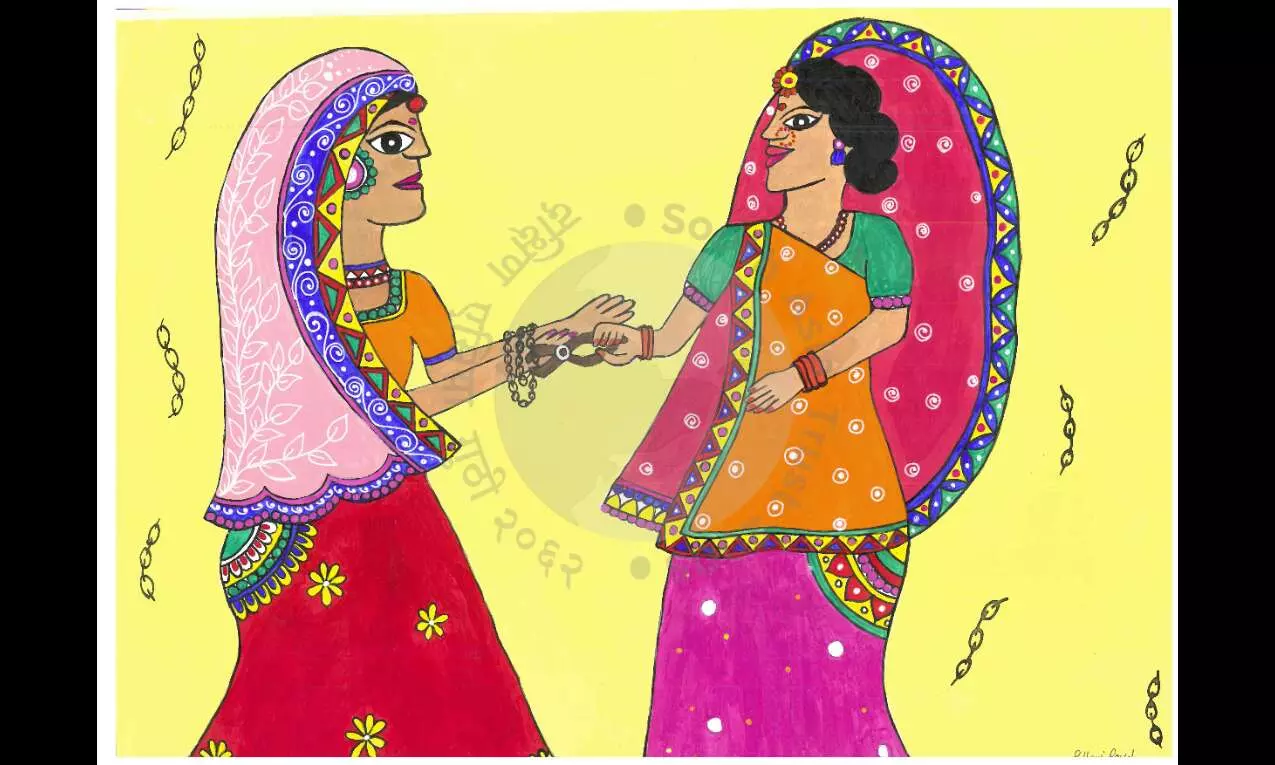Create, Collaborate, Catalyse: Reflections on sexual violence in South Asia

The India International Centre (IIC) has organised an exhibition by the Hri Institute for Southasian Research and Exchange, which will be on view till July 17, 2023, from 11 am to 7 pm daily.
Using photographs, artworks, illustrations, installations, text and digital displays, the exhibition, titled ‘Create, Collaborate, Catalyse: Reflections on Sexual Violence in South Asia’, shares glimpses of a journey exploring the structural roots of sexual violence against women in four countries of South Asia: Nepal, India, Sri Lanka and Bangladesh. The institute critically examines, through an intersectional lens, the prevailing imagery and discourse around gender inequality and challenges the stereotypical depiction of sexual violence in female and queer bodies.
Tired of the same stereotyped images of cowering and terrified women with their hair askew, domineering men gloating over their prey and the graphic and two-dimensional representation of actual acts of violence, the institute collectively pondered: What could be more meaningful ways of depicting trauma? Is the visual simulation of gendered violence the only way to communicate its seriousness? How realistic must representation be to convey its urgency? Is powerlessness the main motif of sexual violence? Can initiatives to pursue dignity and justice emerge only from images that jolt, disgust and disturb?
The Hri Institute for South Asian Research and Exchange (a unit of the South Asia Trust) embarked on a unique collaborative adventure to explore the nuances of imagery around sexual violence against women in South Asia. The initiative brought together filmmakers, researchers, activists, graphic novelists, cartoonists and artists to evolve new thinking around the visual representation of gender-based violence in cinema, the media and popular culture.
Through this series of curated images, the institute attempts to move toward a more empowering visual language that could intervene in the discourse around gender-based violence and gender justice.
Some of the participating artists are Subha Wijesiriwardena and Shermal Wijewardene (‘Face of a Campaign’/Sri Lanka); Nikita Tripathi (‘Digital Reverb’/Nepal); Niharika Popli and Pakhi Sen (‘The City that Spoke to me’/India) and more.



